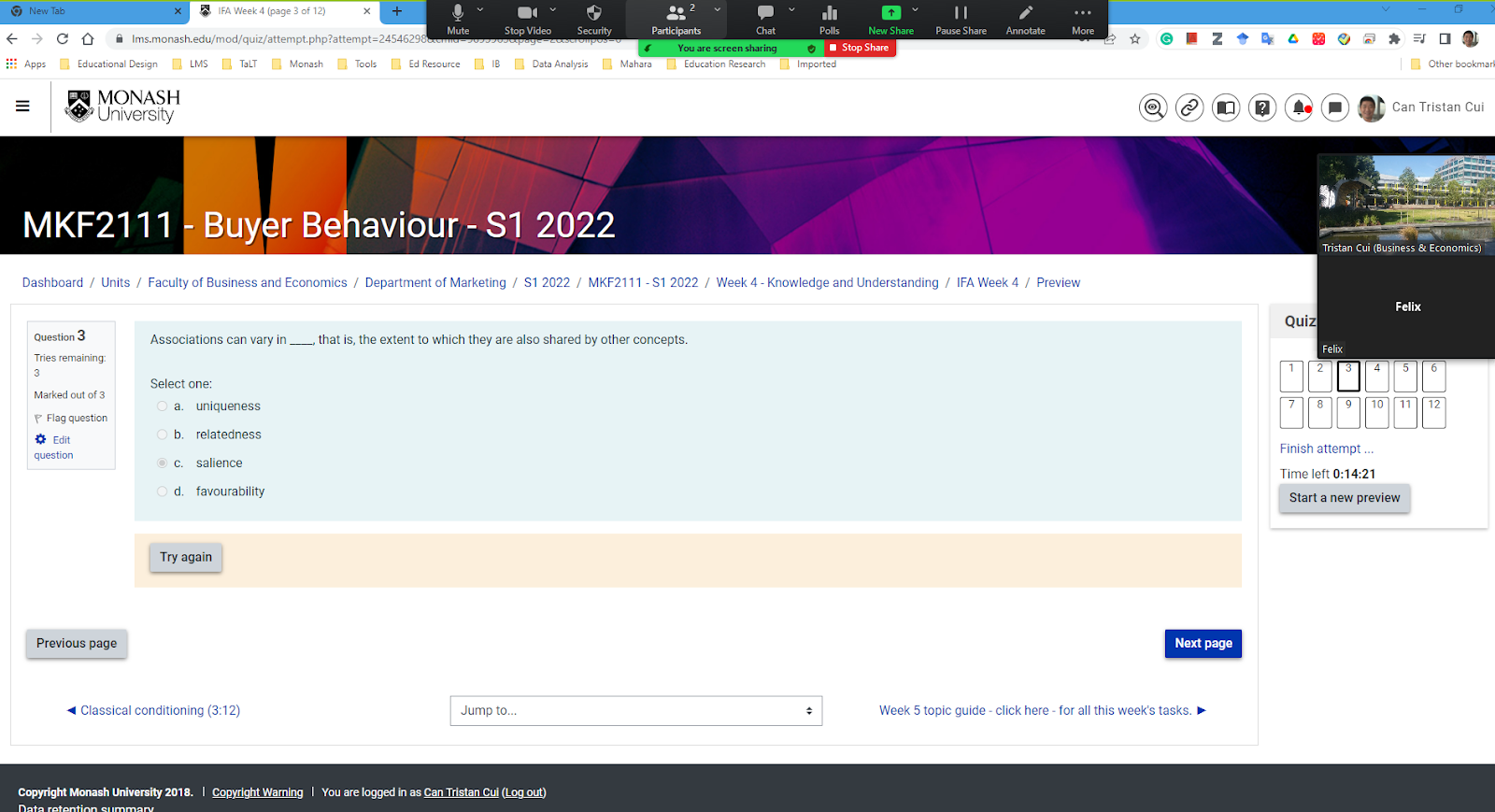The idea of collaborative learning has been around in higher education for a while. For example, Professor Eric Mazur highlighted peer instruction in his famous paper where students worked individually and then in teams to complete weekly quizzes. The quizzes were set up so that students could receive immediate feedback and try multiple times. It was believed to improve student discussion and learning.
Before the pandemic started, collaborative learning activities such as team-based quizzes were quite popular across Buseco. For example, teachers were able to prepare and order scratch-it cards using the immediate feedback assessment technique to host team-based quizzes for their tutorials or workshops as shown below.
However, the sudden change to online teaching brought challenges to continuing such team-based quizzes learning activities. Since tools such as Learning Catalytics are too expensive to use and other free workarounds such as Qualtrics are too difficult to set up (amazing how Dr Amanda White found a Qualtrics workaround), Buseco teachers have to be innovative to make it happen in our online classes.
I have noticed the students' interaction in the breakout rooms. For every question, they discussed before submitting the answer. Then, after the immediate feedback, they could reflect and further discuss the question and submit the answer again until they got it right. Or if they were not 100% sure about the choice, they would be excited if they got it right and immediately reflect on their discussions. And one interesting observation is that the two teams that I observed, they got almost all the questions right, which is different from what I saw in other units' scratch-it questions in face-to-face workshops. This might be because the team leaders, who volunteered to access the online quiz and shared the screen, could possibly also be high achieving students who could guide the discussions to the correct answers. The practice seems effective in engaging online students in peer instruction.
We were keen to maximise team-based activities in tutorials, whilst maintaining an incentive for students to complete the pre-class reading and lesson. The traditional scratch cards achieved both of these outcomes, so it was critical that we found an online equivalent. Who would have thought that Moodle quizzes could be so collaborative!
– Peter (Wags) Wagstaff
Having the online equivalent of the Scratch-it cards was great for several reasons. It allowed us to maintain consistency between the on-campus and online modes of quiz testing. It is also such a fun activity for the students - it takes away the stress of doing individual online quizzes and allows students to socialise. I do believe that it also promotes deeper learning by encouraging students to discuss the answers together.
– Gerri Spassova



No comments:
Post a Comment